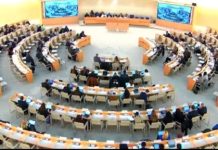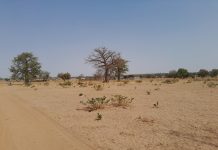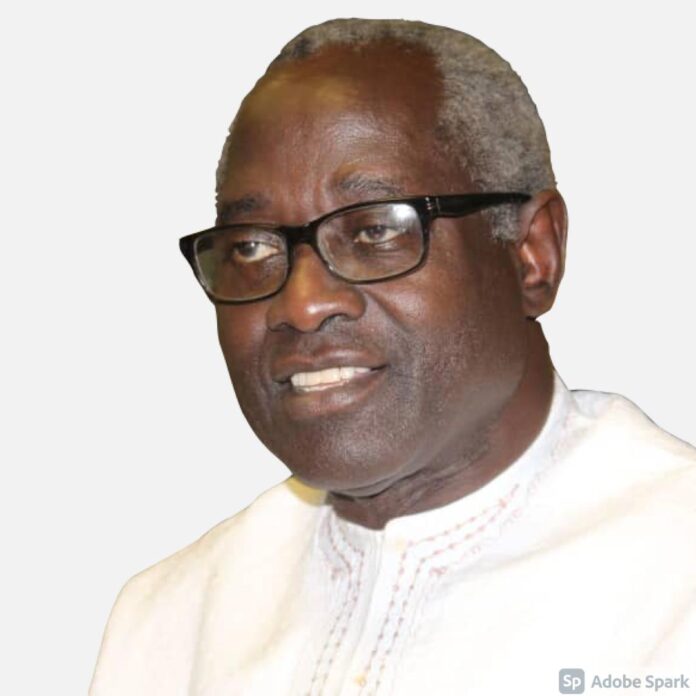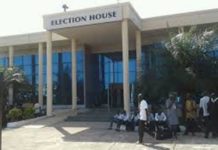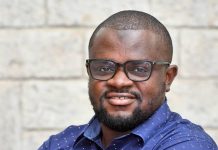By Yankuba Jallow
The People’s Democratic Organisation for Independence and Socialism (PDOIS) on Tuesday, 24th May provided their analysis of the recent by-elections for the area councils and mapped out the way forward for the party.
A press conference was convened by the party at its secretariat in Churchill Town.
Below is the full verbatim statement by the Party’s Secretary General, Halifa Sallah.
We contested in two by-elections in the councils. We would wish to inform you that for the London Corner Ward we had Aji Saptieu Jaye of the NPP as the victor with 1039 votes. She was followed by Momodou Lamin Kujabi of PDOIS 389 votes. Ousman Camara of UDP 357 votes, Ousainou Allen Independent Candidate 232 votes, Sheikh Manka Independent 141 votes and Abdou Wahab Independent 137 votes.
We also received the declaration of results for the Bundung Six Junction Ward where Alagie B. Njie for NPP had 989 votes and Abubacarr Sillah of PDOIS 1124 votes.
In this respect, our candidate won in the Bundung Six Junction Ward and lost in London Corner – still, we have 3 seats in the Council, KMC.
How do we view the results? Some people had indicated that the now constituted ruling party, as it is commonly given that nomenclature, started with by-elections [at] Kerr Jarga Ward and ultimately Niamina West. They won and they said that gave them a footprint to move forward in the political process in The Gambia, which is the second phase of the electoral cycle. Now that we have by-elections before the third phase of the electoral cycle, PDOIS won one and lost one, we can say that this augurs well for PDOIS as a party. We have assessed the results of not only the two by-elections but also the other by-elections in West Coast Region. We leave other parties to do their own assessment, but for our own assessment, we have seen that where you have independent candidates, this is where the NPP won. But where it is a straight fight between the party [NPP] and another party, we have seen that they have lost in both wards. In Bundung Six Ward, it was NPP versus PDOIS and we won. In the London Ward [there were] many independent candidates, we also lost.
We want to tell the nation that we have gathered sufficient information to know that parties alone do not lead to victory in elections – candidates matter and the selection of candidates matter.
PDOIS as a party is a democratic party. It [PDOIS] does not dictate from above who stands as candidate. We convene this press conference to draw lessons. The fundamental lessons that we have drawn must be conveyed to the citizens. The key lesson is that politics is about tactics and strategy. Your strategy must be correct and your tactics must be correct.
PDOIS’ strategy is very simple. That the sovereign Gambian people are the owners of this country – owners of its sovereign wealth; that such sovereign wealth must be utilized to eradicate their poverty and injustice perpetrated against them and any ignorance they are subjected to. We are convinced that is a correct strategy that we consistently promote and consistently adhere to.
The tactics may vary because we can never ever take control of state power without mass support. PDOIS is convinced that we must mobilise the vast people and base that mobilisation on that strategic objective in order to have the representation that will be fit for purpose. That is what we have been doing and that’s where we are today facing the third phase of Gambian electoral cycle, fully convinced, that it is one to one with the party that considers itself as the ruling party.
We are convinced that because of our strategic objective, if we remain determined to educate the people, mobilise them [certainly] they will be able to effect the change necessary.
We would want the Gambian people to know that we are here for the long run. We have always believed that our struggle is a protracted one.
The information we received would lead us to indicate that many [political] parties based their victories on patronage. And we do not see really the popular support that would be required to make us believe that we cannot get the support of the people to change this country.
If you look at the results, we are not really perturbed. We believe that these results do not reflect our capacity to engage the Gambian population – we have not displayed that capacity to the full yet. We believe that we are now being enticed by the results to know that we are capable of changing the destiny of this land. Anybody who believes that PDOIS cannot win an election must now know that that is false.
Listen. Many people, in the past, have gone to the Gambian electorate to try to convince them that PDOIS should not be considered. We believe that winning an election directly with the ruling party indeed is worthy for Gambians to take note of for the future.
Councils are key instruments for the transformation of a society. Our councillor and other councillors who are PDOIS councillors need steps in proving that to the Gambian people. Democracy is not only about national representation but it is also about community representation. Community representation is in fact more direct and that is why in the Local Government Act it is made very clear that the councils will constitute the leading role into our development process in our villages and towns. Councils are given power to raise revenue and put it in a fund. That community development fund of the council is what should be used to eradicate many things we see in our streets today – congestion in the streets, lack of street lights, lack of taps, filths everywhere, lack of maintenance of garages [car parks]. Everything that is an eyesore can be eradicated by the councils.
The law is very clear under section 4 of the Finance and Audit Act of the councils; that we must generate revenue for the councils and 60% of the revenue should go to development process. 60% of all revenue generated should be utilized for development and to ensure there is sharing of the national cake, section 128 of the Local Government Act emphasises that 25% of the development fund of councils should be provided by Government to facilitate development in all council areas.
So, when you look at the development fund of councils, 60% then 25%, and it is mandatory, in order to facilitate the development of the councils, the councils should get support from the national government in order to facilitate development of the local government area.
Contrary to what is believed, the councils must be very close to the population. That is why it starts budgeting with determination of revenue estimates and expenditure estimates. It requires draft estimates to be posted to indicate what the people need, what is there to be budgeted for and what is there to be provided for. So, the councillor is not an ordinary person in this respect. The councillor is not a National Assembly member. The National Assembly member is not elected to control a budget to provide services to people in a community. There is the central government empowered to establish ministries, appropriate resources to those ministries, establish policies and ensure that these policies would find themselves in programmes that will be implemented as activities in all parts of the country, in all areas of development so that annually in agriculture, in education, in health and all sectors you will see development and there will be indicators to see that development taking place. Because of the implementation of those polices, the head of state is required to go around the country annually to see the manifestation of the implementation of those policies because funds would have been given for their appropriation and implementation.
During your last council by elections, the last National Assembly elections and this last by-election, it was important for the party to clarify its position on many matters but we did not. We wanted our councillors to participate and fight their fight without any influence from anybody. Abubacarr Sillah won without our intervention. It was the fight of the community – a united community that wanted change irrespective of where they stood before the elections. That is what we anticipate in a country – that political parties are simply schools for the citizenry and the leadership of a country to garner what it means to be a citizen and what it means to be a representative of a nation. And from nurturing their members to be citizens who nobody can own, who would go there and elect based on informed choice, then you have the sovereign Gambian, a new Gambian that PDOIS have been calling for; a Gambian who cannot be subjected to any inducement or intimidation; a free Gambian who would express the most enlightened view of what is best for this country and what is best for her people.
We are convinced that PDOIS is on that trajectory of nurturing that citizen but that trajectory is not enough if we nurture only citizens who vote and elect leaders. We are also nurturing leaders who can deliver. That is the purpose of the party and that’s why when we nurture you, we leave you on the ground to contest elections. That is what should be. Not to hang around at night in corners buying votes. That is not the type of party member PDOIS is nurturing. That is not the type of party member PDOIS will ever nurture. We are not slaves. People must be free. They must own their country and they must own their votes. They must own their mind.
In that respect, when we win elections based on the free consent of the voter we have not done anything to bribe that voter to vote for our candidate. That is the level of democracy PDOIS has reached.
Second level of democracy, it is the community that selects the candidate – internal party democracy. It is the community that selects a candidate, not a central committee or people sitting up there deciding who should stand or who should not stand. That is why when candidates want to stand, they can hold primaries and let members choose whoever would be their candidate. That is our process.
We want to emphasize to you that the party is preparing the way now to move to that direction where the whole country will also follow.
We are convinced that political parties in this country would no longer wish to win elections through bribery – through corrupt means. We believe that as we move forward the examples will be there to follow and the law is there to be enforced. We are going to be strict on that as we move forward.
We believe that this is a new journey and no party is in control if you look at the results. The Gambian people are in control and they are very unpredictable at the moment. We must help them to be decisive and enlighten them to be aware of their interest through educating them.
Our councillor and our National Assembly member should bear this in mind, that there was a debate as to resources being given to National Assembly members to bring about development. Which minister will in fact propose such a thing in the first place to come to a national budget for appropriation? National Assembly members are not part of the Executive. And any National Assembly member who told you that he or she has brought about development in your community through money given to him or her is not telling you the truth. National Assembly members are not given money and cannot be given money. The budgetary system is clear.
The Public Finance Act under section 28 states very clearly that after budgetary appropriation, there are vote controllers. [At] the National Assembly, it is the Clerk of the National Assembly who is the vote controller. If you put money under that budgetary system, it is not the money of the National Assembly member – it is there [as] the budget of the National Assembly. It is not given to any National Assembly member. It is by virtue of the appropriation, that the National Assembly will say these are the projects that are launched and the National Assembly will follow it through and ensure that the money goes where it should go. In essence, it is the National Assembly that is implementing that project – you are just being consulted. And because you are just being consulted, you are not accountable but you are going to be the one who is to going to organise who is going to implement the project. Who knows whether you are honest or dishonest, whether someone would dig a borehole for you, but a cheap one – an inferior one? Who is going to determine the quality? Who will say you will not go to the person at the end of your term and say you will give me D50,000 for my campaign? Who can say that? What are you doing then? That is promoting self-perpetuating rule of a National Assembly member. That is not what a National Assembly member is for.
The National Assembly member is there to perform oversight to ensure that the funds appropriated are spent the way they are supposed to be spent. Otherwise, you blow the whistle and tell the people so that they will remove that government and replace it with another government that would appropriate properly and implement properly.
It is the councils that should receive that fund. It is the councils that should bring about development in our communities. That is what our National Assembly member should go and fight for because they have not been receiving the funds necessary for the development of their councils. All National Assembly members agreed that the vote that should come to councils for development increases to be able to address the needs and aspirations of the people in the communities.
Community governance is meant to be grassroots governance – that is the policy of decentralisation and devolution of power. The council is directly linked to the community. Therefore, it is the best access for development to take place. That is why we have village development committees and for all those village development committees the membership is linked to the kabilos – the community so that the community is directly involved in governance; in management of their affairs. Then the ward development committee arises from the village development committees so that there is a linkage where the chairperson becomes the councillor.
By 30th September the budget [of the councils] would have been prepared but prior to that the draft would have been circulated and in every ward; it would be displayed and the councillor would have done consultation and they would have known the exact budgeting that has taken place and what is required for development in that community. The people are involved.
But you say you are giving fund to an individual [National Assembly member] who has never consulted the community and tell you well this is what is needed. That is not the type of development that we should vie for.
The councils must be seen as the cornerstone of community development, community democracy and community governance.
Henceforth, we have our people ready to work with our councillors and emphasize training of all sorts so that we can all be aware and fully prepared for our mandate. We hope our councillors would work together with the National Assembly members so that we begin a new process of involving our people in development. Our new councillor has in fact been working with the community.
We do not have sporting grounds for our own area and Bundung Six Junction is not an exception. Children are sitting without recreational facilities, rehabilitation centres and without vocational centers. Nothing is there for them. What happens is we transform them into quasi-criminals. That is not what the country wishes and her children. Therefore, our councillor and other councillors and National Assembly members will begin that engagement with the Gambian people in the communities to ensure that they have people who love them, who care for them, who can run with them, exercise with them and Sidia [Jatta] and I will join you to see what age means and whether age matters. We will engage the community as re-service. In the military they have their re-service. They are to accompany those who say they are vibrant and have the energy to serve.
I looked at the results and those who are there to witness the results, I saw someone who in fact, stood as a National Assembly member and had over 5000 votes and that was in 2012. Sidia, who was a sitting member of the National Assembly and I decided not to participate in the 2012 National Assembly elections to promote electoral reform. We established GOFER. Now some of them are saying some people protested, that was why we had a change in the country forgetting that a sitting member of the National Assembly decided not to participate in elections in 2012 just to show that this system needs changes and we will not participate in National Assembly elections until we changed it. And yes we changed it in 2016 and that was what gave birth to the Coalition. Every other doctrine is false and we will clarify everything to be known. Go and read the documents of GOFER and see where it started with the struggle for electoral reform. We concluded with the 2016 victory of the coalition. Some people here don’t beat their chest because they believe in [service] to nation and people. We love nation and people and we are ready to sacrifice everything for it. Now we will make everything clear.
In conclusion, it is the beginning of another beginning for the National Assembly. We did not have a councillor in Bundung Six Junction Ward [but] now we do. That’s a good beginning. We don’t have a councillor in London Corner but we have a National Assembly member. We will prove what that means to that community.
We believe that as we move now and tomorrow [that] Gambians should begin to understand the fundamental difference between Laissez-Faire Formal Democracy and Substantive Democracy.
LAISSEZ FAIRE FORMAL DEMOCRACY is where you accumulate as much wealth as possible, dispense the money so that you mislead and buy people to go and vote for you to stay in power; which is very fragile and unreliable as we have seen in 2016. And SUBSTANTIVE DEMOCRACY is where the people believe what they do and put their heart in what they believe in.
We (PDOIS) believe [in] Substantive Democracy. While that may be small, but in our science, what is arising and developing is much stronger than what is disintegrating and dying no matter how large or big. We believe the truth is arising and developing. The truth will shine and sooner or later we (PDOIS) will see the day. Thank you very much.



